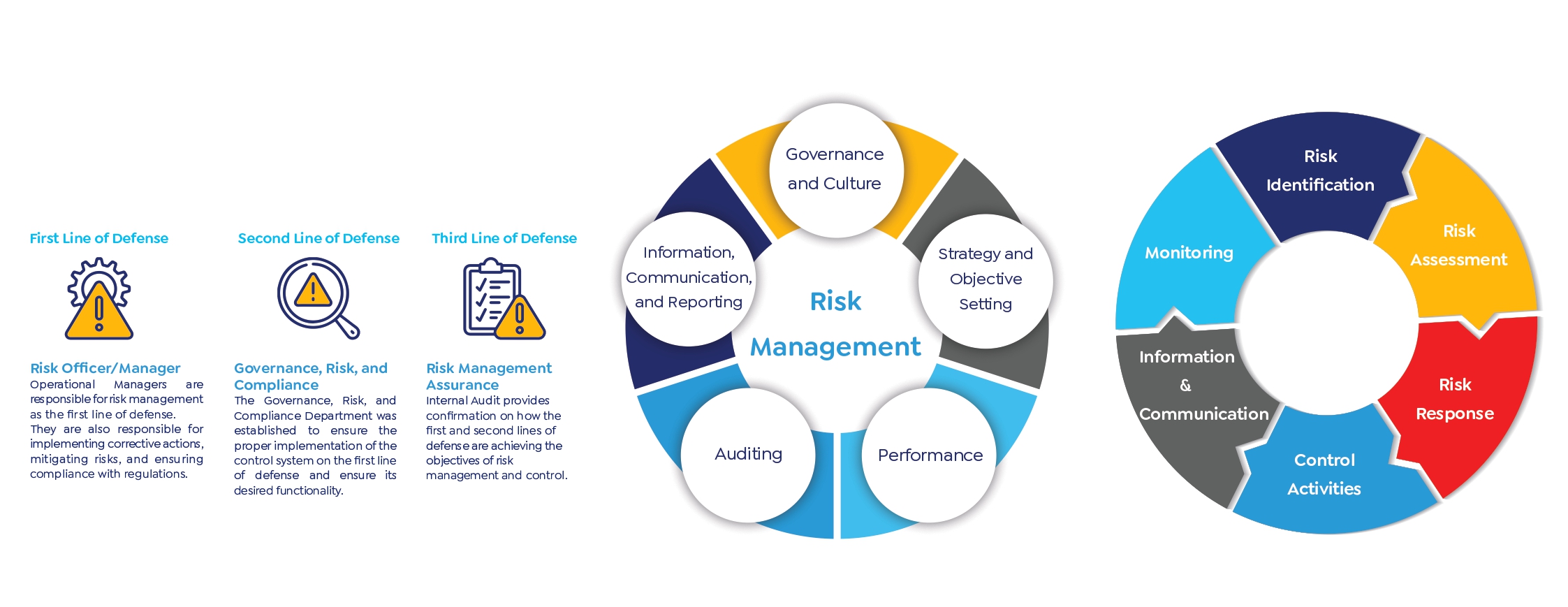Governance Breif
The National Medical Care Company (Care) is fully committed to implementing international best practices and the highest standards in terms of corporate governance, which contributes to maximizing the added value of the company. The essence of our approach to corporate governance is to maintain a robust framework and procedure that ensures continuous compliance with best corporate governance practices at all times, all aimed at protecting the rights of shareholders and other stakeholders. (Care) is committed to all applicable laws and regulations and ensures their effective implementation through many internal regulations, policies and directives designed to achieve best practices in corporate governance and operational excellence, and to achieve the strategic goals of the company. The core corporate governance (Care) documents include: - Bylaws - Nomination policies for membership of the Board - Audit Committee Charter - Conflict of interest policy - Business competition standards - NRC Charter - Corporate Governance Charter - Code of Business Conduct and Ethics Standards - Stakeholder Rights policy - Social Responsibility policy - Executive Committee Charter - Board of Directors Charter - Disclosure policy According to our approach, the Governance and Compliance team at (Care) continuously reviews the company's policies and procedures and works to update them in a manner that is in line with the relevant regulations.
- Bylaws of National Medical Care Company
- Corporate Governance Charter
- Corporate Social Responsibility Policy
- Stakeholders’ Rights Policy
- Disclosure Policy
- Competing Business Standards
- Conflict of Interest Policy
- Code of Business Conduct and Ethics Standards
- Board of Directors Charter for National Medical Care Company
- Policies, Criteria and Procedures for Nomination to Membership of the Board of Directors
- Remuneration Policy for Board, its Committees and Executive Management
- Executive Committee Charter
- Nomination & Remuneration Committee Charter
- Audit Committee Charter
- Anti-Money Laundering and Terrorist Financing Policy
- Anti-Bribery and Corruption Policy
Sustainability (Esg)
A business approach that contributes to the development of long-term value and takes into account the environmental, social, and economic climate of how a particular organization operates. The concept of sustainability is based on the premise that the implementation of such strategies enhances business sustainability
Financial Statements
The financial statements aim to provide detailed financial information for Care that benefits current investors as well as potential investors, and Care is committed to presenting its financial statements through International Financial Reporting Standards (IFRS).
Presentation for Investors
Risk management introduction
The ERM framework focuses on the need to manage risk in strategic planning and integrate it throughout the organization because risks affect strategy, performance, and alignment across all departments and functions. (Care) has obtained ISO 31000 certification in risk management which gives us efficiency and commitment to international standards. The risk management framework consists of five interrelated components that are necessary to ensure improved performance:
Governance and culture: Governance determines the way an organization operates, establishes oversight responsibilities for managing enterprise risks, and enhances their importance, as culture relates to ethical values, desirable behaviors, and an understanding of risks in the enterprise.
Determining the strategy and objectives: Enterprise and strategic risk management work together in the process of setting objectives and strategic planning, where risk appetite is identified and aligned with the strategy and strategic business objectives are put into practice while working as a basis for identifying and evaluating risks and how to respond to them Performance: Risks that may affect the achievement of the organization's strategy and objectives must be identified and evaluated. Risks are prioritized according to their severity in the context of risk appetite, and then determine how to respond to the risks. The results of this process are communicated to key stakeholders in the risk area
Review: By reviewing entity performance, the organization can look at how well the ERM components are performing over time and in light of significant changes and periodic reviewsInformation, Communication and Reporting: The ERM process is an ongoing process of obtaining necessary information from both internal and external sources that flows through the organization.



